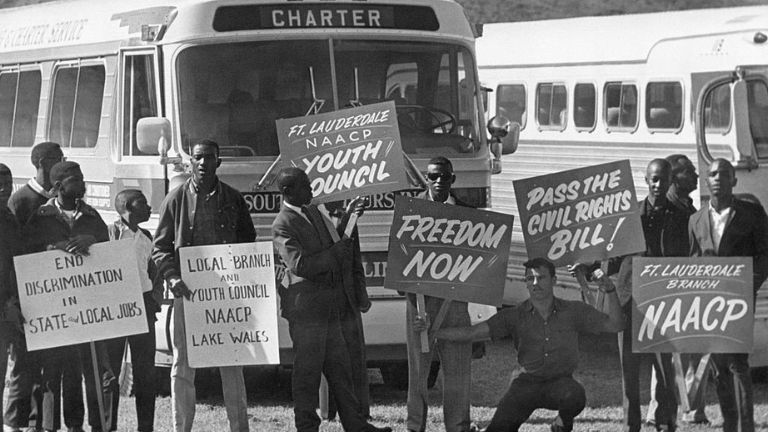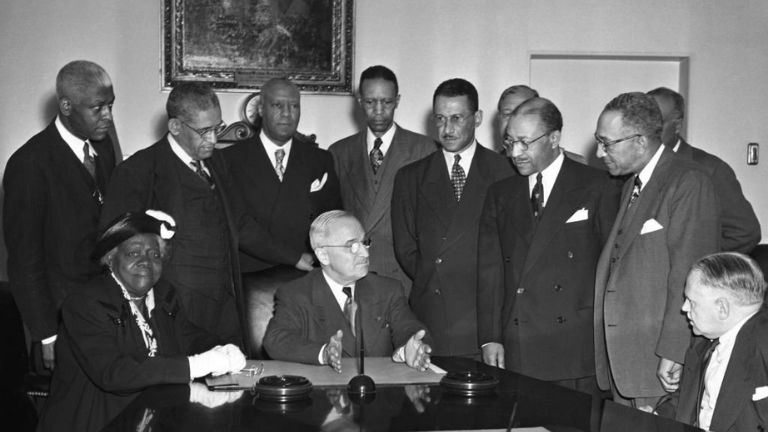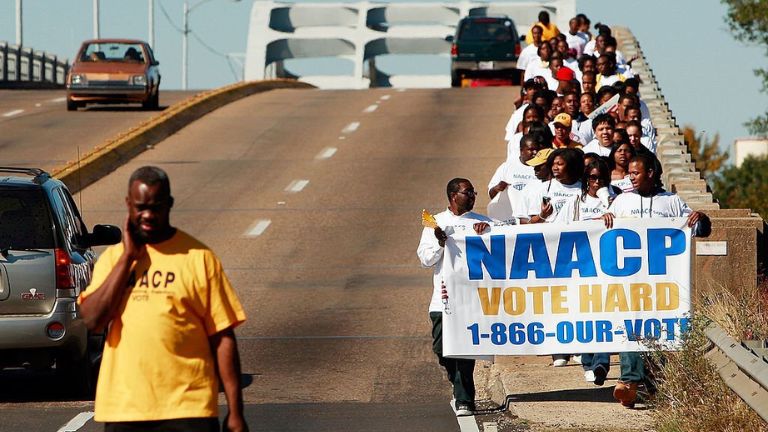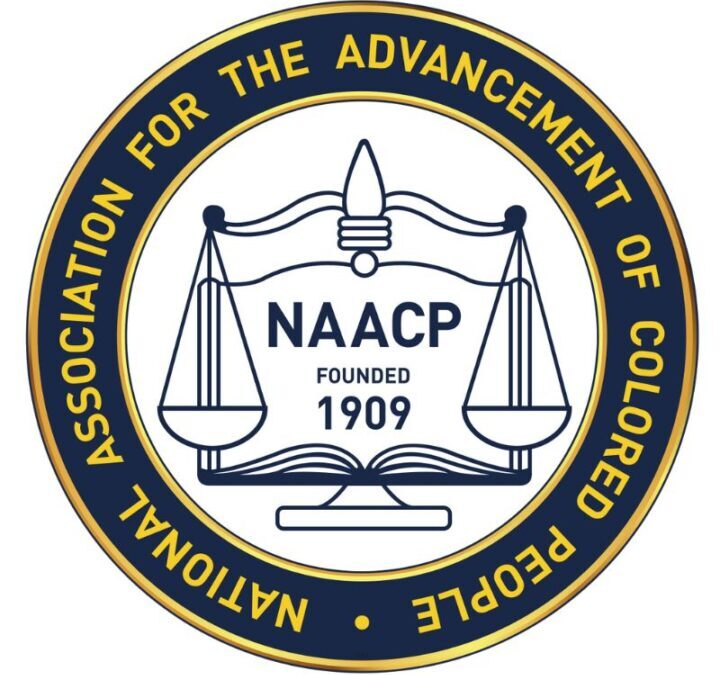Over a century ago, the National Association for the Advancement of Colored People (NAACP) was founded with a resolute mission to secure equal rights and eradicate racial discrimination. Since its inception in 1909, the NAACP has been at the forefront of the battle for justice, striving to create a more equitable society for all. From fighting against segregation and advocating for civil rights to addressing systemic inequalities and promoting diversity, the NAACP has been a steadfast beacon of hope for marginalized communities across the United States.

The Struggle for Civil Rights
Major Campaigns and Protests
While the NAACP has been at the forefront of the fight for civil rights since its inception in 1909, some of the major campaigns and protests that have significantly impacted the course of history include the Montgomery Bus Boycott, the March on Washington for Jobs and Freedom, and the Selma to Montgomery marches. These events not only drew national attention to the injustices faced by African Americans but also paved the way for landmark legislation such as the Civil Rights Act of 1964 and the Voting Rights Act of 1965.
Legal Battles for Racial Equality
An integral part of the NAACP’s mission has been to challenge discriminatory laws and practices through legal means. Through landmark cases like Brown v. Board of Education, which led to the desegregation of schools, and Loving v. Virginia, which struck down laws prohibiting interracial marriage, the NAACP’s legal victories have played a crucial role in advancing racial equality in the United States.
Campaigns led by the NAACP have not only focused on changing laws but also on changing hearts and minds. Through education and advocacy, the NAACP has worked tirelessly to dismantle systemic racism and promote equality for all individuals regardless of race.

The NAACP’s Role in Advancing Education
Desegregation and Access to Quality Education
On its foundation in 1909, the NAACP made advancing education for African Americans a primary goal. The organization played a crucial role in the fight for desegregation in schools, aiming to secure equal educational opportunities for all. Through legal battles and advocacy efforts, the NAACP worked to dismantle the barriers that prevented Black students from accessing a quality education.
Scholarship Programs and Youth Engagement
One of the ways the NAACP has continued to advance education is through scholarship programs and youth engagement initiatives. These programs provide financial aid and educational resources to support talented students in pursuing higher education. By engaging with young people and empowering them through education, the NAACP cultivates future leaders and drives positive change in communities.
Access to quality education is a fundamental right that the NAACP continues to fight for, recognizing the transformative power of education in breaking the cycle of systemic inequality. Through advocacy, programs, and partnerships, the NAACP remains committed to advancing education and ensuring that all individuals have equal opportunities to learn and succeed.
Political Action and Legislation
Influencing Policy and Voter Mobilization
Unlike some other civil rights organizations, the NAACP has a long history of actively engaging in political action and lobbying for important legislation to promote equality and justice for all. They have been instrumental in influencing policy decisions and mobilizing voters to support candidates who align with their values.
Collaboration with Other Civil Rights Organizations
For the NAACP, collaboration with other civil rights organizations has been a cornerstone of their strategy for progress. By working alongside groups like the ACLU, Urban League, and Southern Poverty Law Center, the NAACP has been able to amplify their advocacy efforts and reach a wider audience with their message of equality and inclusivity.
The NAACP’s partnerships with other civil rights organizations have strengthened their collective impact on issues such as voting rights, criminal justice reform, and educational equity. By uniting with like-minded groups, the NAACP has been able to push for systemic change and address injustices on a broader scale.

The NAACP in the 21st Century
Addressing Modern-Day Racial Injustices
After more than a century of fighting for justice and equality, the NAACP continues to address modern-day racial injustices with unwavering determination. From advocating for criminal justice reform to combating voter suppression, the organization remains at the forefront of the ongoing struggle for civil rights.
The Future of the NAACP and Civil Rights Advocacy
For the NAACP, the future of civil rights advocacy lies in adapting to the changing social and political landscape while staying true to its founding principles. Embracing new technologies and strategies will be crucial in reaching a younger and more diverse audience to continue the fight for equality and justice for all.
This dedication to progress is evident in the NAACP’s commitment to evolving its advocacy efforts to effectively address emerging issues of inequality and discrimination. By staying proactive and forward-thinking, the organization remains a powerful force in the fight for civil rights in the 21st century.
Summing up
Taking this into account, the NAACP has been a steadfast advocate for justice and equality since its founding in 1909. Through decades of relentless activism, litigation, and grassroots organizing, the organization has played a pivotal role in advancing civil rights and fighting against systemic racism in the United States. The NAACP’s commitment to ensuring equality for all individuals regardless of race has left an indelible mark on American history, and its work continues to be vital in the ongoing pursuit of a more just and equitable society.
FAQ
Q: What does NAACP stand for?
A: NAACP stands for the National Association for the Advancement of Colored People.
Q: When was the NAACP founded?
A: The NAACP was founded on February 12, 1909.
Q: What is the mission of the NAACP?
A: The mission of the NAACP is to secure the political, educational, social, and economic equality of rights in order to eliminate race-based discrimination and ensure the health and well-being of all persons.
Q: How does the NAACP work towards its goals?
A: The NAACP utilizes advocacy, litigation, education, and outreach programs to fight for justice and equality for all individuals, particularly those who have been historically marginalized and oppressed.
Q: How can I get involved with the NAACP?
A: You can get involved with the NAACP by becoming a member, attending local chapter meetings and events, volunteering, donating, and advocating for social justice issues in your community and beyond.
See also our article on : Reverend Jesse Jackson










